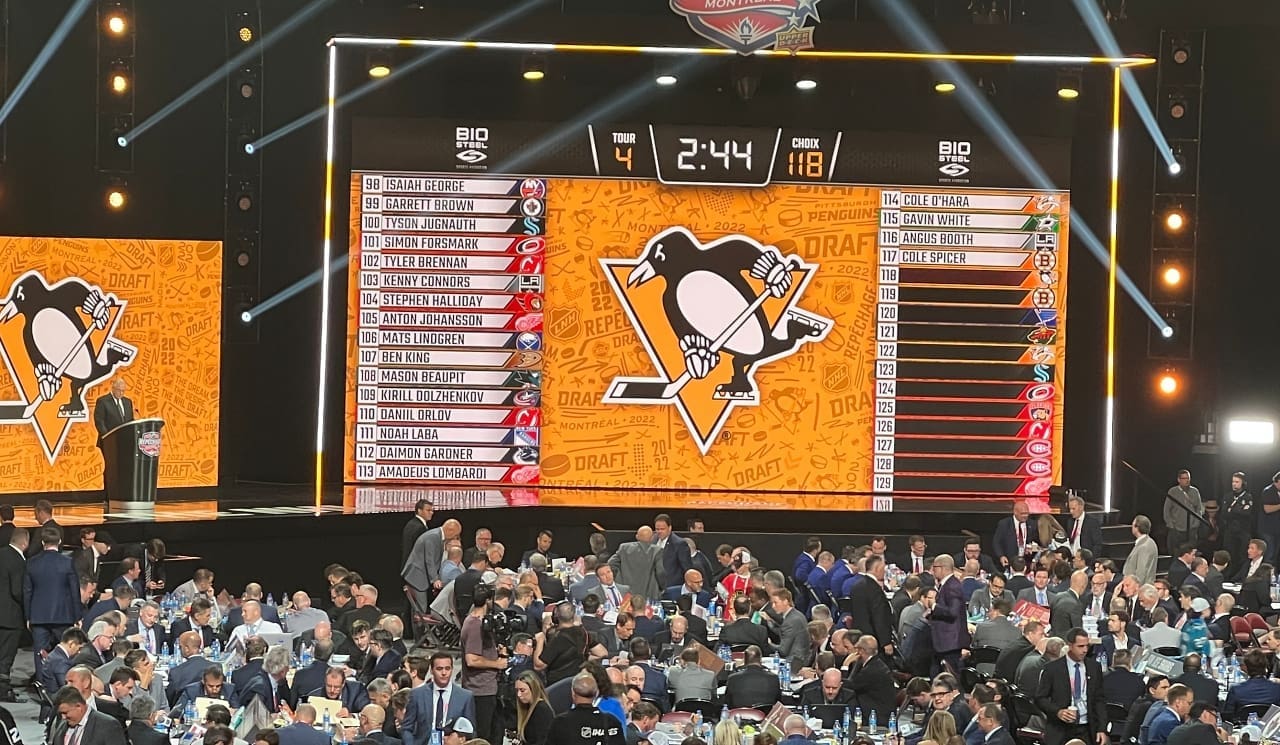Penguins
Molinari: Penguins’ Next GM Can’t Need On-the-Job Training

The Pittsburgh Penguins embraced analytics quite a while ago, and quickly integrated it into their decision-making process.
Their website lists three people in the Hockey Operations department who are described as “data scientists,” and the information they develop and provide presumably influences whether the team tries to sign or draft a particular player, and how aggressively it should attempt to do so.
The Penguins hardly are alone in that. Monitoring detailed statistics, primarily with the objective of predicting future performance, figures to be a permanent part of the NHL.
While it remains to be seen who the Penguins’ next general manager will be, it’s safe to assume that it will be someone who appreciates the value of analytics, and will have no qualms about factoring that information into personnel decisions.
That does not, however, mean that Ron Hextall’s eventual successor necessarily should be someone with roots in the world of analytics.
Given the particulars of the Pittsburgh Penguins’ situation — they have a roster whose core players are in their mid-30s and haven’t won a playoff series since 2018 — even the most chronically optimistic observer has to acknowledge that the window to transform this group into a viable Stanley Cup contender won’t be open much longer.
(The contention here is that it actually closed in 2020, if not earlier.)
Since Fenway Sports Group has made it clear, publicly and emphatically, that the next GM’s mandate will be to chase another championship, that general manager should be someone who won’t require on-the-job training about all that the position involves, because that would require time the Penguins don’t have to give.
Even if the position is filled within the hour — and there’s absolutely no reason to anticipate anything of the sort — the GM will have less than two months to get familiar with the Penguins’ amateur scouting staff and organizational depth chart before overseeing the NHL Draft, in which the Penguins are scheduled to pick in the first round for just the third time in eight years.
For an organization whose pool of quality prospects is barely a puddle, getting that pick right is imperative.
A few days later, free agency will get underway, which means that becoming familiar with the Penguins’ personnel and making accurate decisions about who should be retained — or pursued — will have to overlap with draft prep, at least part of the time.
The ability to multi-task is the norm for any NHL GM, but whoever is hired by the Penguins will be obliged to do it at a turbo-charged level for much of this offseason.
That is why Hextall’s replacement should be someone who already has the experience and contacts and relationships that come from serving in a position that requires interaction with colleagues from other organizations.
Someone who can call Jim Nill in Dallas or Minnesota’s Bill Guerin or Pat Verbeek in Anaheim to discuss a possible trade without first having to go through introductions, let alone establish the trust that can facilitate such negotiations.
Someone who won’t have to wear a “Hello, my name is …” tag when GMs from around the league get together.
None of this is to downplay the importance of analytics, or the value of the people who have worked solely in that field.
If the Pittsburgh Penguins somehow manage to reclaim a place among the NHL’s better clubs in the next few years, it almost certainly will be because of trades and waiver claims and free-agent signings in which analytics played a prominent role.
The next GM undoubtedly recognizes — and appreciates — that.
But that GM should not be someone whose front-office experience has been limited to analyzing data. Not now, anyway.
This just isn’t the time. Or, at least, the team.












